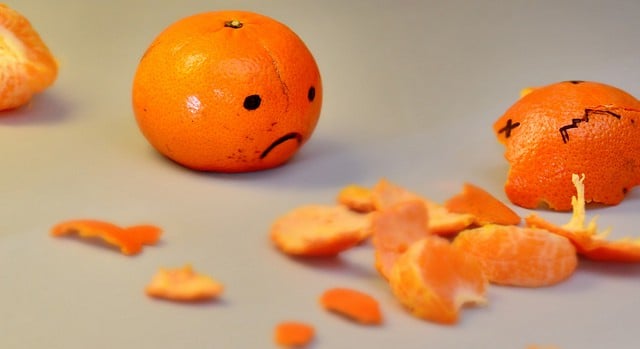In third grade I’m the butt of jokes. I was the butt of jokes in first and second grade too, but this year is especially worse. I’m husky, also terribly shy, I’m wearing Payless brand tennis shoes instead of Nike Airs, and I’m not very good at math. I’m in math class with Mrs. Reikert and 19 other eight year-olds.
Today, Mrs. Reikert decides board races are in order. “Brian, Keith, Damian, and Courtney, to the board.” She sounds like a basketball coach, readying us to run lines. “Write out the problem before you answer. The last one to solve is out.” I grab the chalk and place it on the board. My dad and I have been working real hard on memorizing times-tables. I’m ready.
“Two times one.”
Two! Whew.
“Three times three!” Like little woodpeckers, chalk knocks on the black slate.
Nine! Barely.
“Four times seven!”
I don’t know this one. I haven’t memorized it yet. And my seven is backwards. Math dyslexia. It’s like hanging upside down and I have to contort myself to see things right side up. The equation looks awkward. I can’t see the problem clearly. It makes no sense. I peek over to see what Brian writes – he’s the smartest in class, he’ll know the answer. And copying seems the best strategy.
“Stop! Damian, what’s the answer? Do you know?” I say nothing. I do nothing. I cried the last time; this time I will be strong. The kids laugh. Mrs. Reikert chuckles. “Class, this is why we work hard. If we do not, then we can never be anything. Do not be – what?!”
“LAZY!”
“Damian is – what?”
“LAZY!”
“Do not be Damian.”
I didn’t know it at the time, but what she said, word for word, has been unshakable. It was mean.
***
Mean dismisses. It disregards. It undervalues. It implies the mean-doer is somehow superior to the one being targeted. Perhaps ego and arrogance and inflated confidence might have something to do with it. But being mean takes life away rather than giving life or allowing it to flourish.
And on the other side of mean is someone getting bruised. Mrs. Reikert, the kids in my grade — they had no idea their actions would profoundly shape my life. They cut me deep. So too, harsh remarks about someone who is overweight, or ugly gossip behind someone else’s back, or comments whispered and overheard. These seemingly small behaviors can do substantial damage. Being mean hijacks life.
A few weeks ago I had to present a draft of my final paper for the class to critique. The level of anxiety I felt was quite heavy. I could’ve broken down in tears at any moment. My head was aching, my palms were sweating, my mouth dry as I read aloud the pages I brought to class. At the end of it all the professor leaned across the table and looked straight into my eyes. “This will be hard for you to hear.” he said. “What you have written is good philosophy. You are doing good philosophy.”
***
It was easier at some points in my history to bury that time in third grade deep in my mind. But not always. Sometimes it seems the older I get the louder those voices become. It’s unfortunate: the noise of antagonism can be much louder than the peacefulness of love. Somewhere I figured out Mrs. Reikert’s use of the word “lazy” translated to “stupid” for me. That became my truth. And, in my head, that’s all I hear, over and over, deafening everything else. But in that moment with the professor, Mrs. Reikert and my third grade class were silenced.
I’m learning to find my strength as I shed the past that told me I was dumb and didn’t matter. Through it all, though, supportive Jesuits in my community, encouraging friends and family, and, yes, even some inspiring teachers have surrounded me with their confidence. They have taught me determination and perseverance. And with it I’ve gained some resiliency and improved my fortitude. All of which has brought me this far, even if it’s taken me this long to discover. And in learning all this I am able to stand up with others who are similarly pushed to the margins.
There comes a time, after all the pain subsides, to rebuild what meanness broke down. Sometimes, mean can become the catalyst for living. It just takes bravery. And a little patience. And some faith.
–//–
This post is part of a series in preparation for Magis 2016, a gathering of young adults before World Youth Day in Poland. Pope Francis has offered participants a series of twelve questions for their preparation. To see how others are responding to the question, “What takes life away from you?” check out the Magis website.
The cover photo, from Flickr user kev-shine, can be found here.


